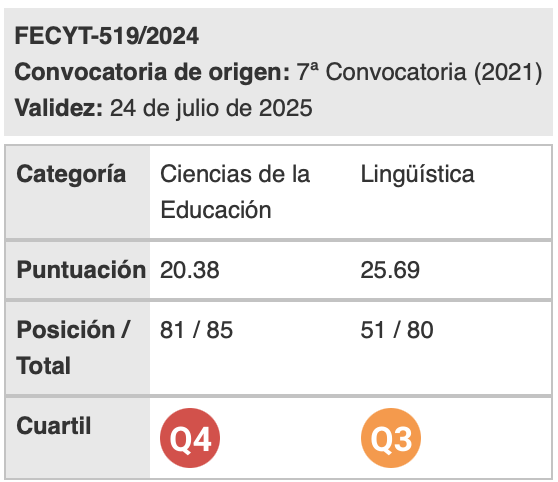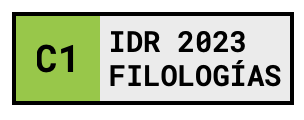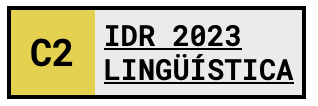Blaj-Ward, L. (2014) Researching Contexts, Practices and Pedagogies in English for Academic Purposes. Basingstoke: Palgrave Macmillan, pp. 204
Keywords:
English for Academic Purposes, language teachingAbstract
Responding to a growing interest in evidence-based research within EAP, Researching Contexts, Practices and Pedagogies in English for Academic Purposes is as timely as it is wide-ranging, well-thought and suggestive. It becomes a much-welcome contribution to the literature, as it offers an impressively detailed snapshot of current trends and approaches within educational research as these have been directly applied to EAP. The book is not aimed at active educational researchers, but to “practitioners and decision-makers in the area of supporting international students in English-medium higher education” (p. 2). It reads, as a consequence, as much more than an aggrandized compilation of recent research; strongly driven by context, it offers valuable background knowledge and a wealth of research practices that readers are encouraged to apply to their own contexts...
DOI: 10.20420/rlfe.2015.0016
Downloads
References
Alexander, O. (2012). Exploring teacher beliefs in teaching EAP at low proficiency levels. Journal of English for Academic Purposes, 11(2), 99-111.
Basturkmen, H. (2007). Ideas and options in English for Specific Purposes. Mahwah, NJ: Lawrence Erlbaum Associates.
Belcher, D. D. (2006). English for Specific Purposes: teaching to perceived needs and imagined futures in worlds of work, study, and everyday life. TESOL Quarterly, 40, 133-156.
Bloch, J. (2013). Technology and ESP. In B. Paltridge, & S. Starfield (Eds.), The handbook of English for Specific Purposes (pp. 385-401). Oxford: Wiley-Blackwell.
Bruce, I. (2011). Theory and concepts of English for academic purposes. Basingstoke: Palgrave Macmillan.
Cheng, A. (2011). ESP classroom research: Basic considerations and future research questions. In D. Belcher, A. Johns, & B. Paltridge (Eds.), New directions in ESP research (pp. 44-72). Ann Arbor, MI: The University of Michigan Press.
Cousin, G. (2009). Researching learning in higher education: An introduction to contemporary methods and approaches. Abingdon: Routledge.
Doiz, A., Lasagabaster, D., & Sierra, J. (2012). English-medium instruction at universities: Global challenges. Bristol: Multilingual Matters.
Hamp-Lyons, L. (2011). English for Academic Purposes: 2011 and beyond. Journal of English for Academic Purposes, 10(1), 2-4.
Hardwood, N. (2013). English language teaching textbooks. Basingstoke: Palgrave Macmillan.
Hardwood, N., & Petric, B. (2011). English for academic purposes. In J. Simpson (Ed.), The Routledge handbook in applied linguistics (pp. 243-258). Abingdon: Routledge.
Holme, R., & Chalauisaeng, B. (2006). The learner as needs analyst: The use of participatory appraisal in the EAP reading classroom. English for Specific Purposes(25), 403–419.
Hyland, K. (2006). English for Academic Purposes: An advanced resource book. Abingdon: Routledge.
Jenkins, J. (2013). English as a lingua franca in the international university. Abingdon: Routledge.
Kukusha-Hulme, A. (2012). How should the higher education workforce adapt to advancements in technology for. Internet and Higher Education(15), 247–254.
Liu, J.-Y., Chang, Y.-J., Yanga, F.-Y., & Suna, Y.-C. (2011). Is what I need what I want? Reconceptualising college students’ needs in English courses for general and specific/academic purposes. Journal of English for Academic Purposes, 10(4), 271–280.
Lucas, U., & Tang, P. L. (2013). Developing a capacity to engage in critical reflection: students' ‘ways of knowing’ within an undergraduate business and accounting programme. Studies in Higher Education, 38(1), 104-123.
Robson, S., Leat, D., Wall, K., & Lofthouse, R. (2013). Feedback or feed forward? Supporting Master’s students through effective assessment to enhance future learning. In J. Ryan (Ed.), Cross cultural teaching and learning for home and international students: Internationalisation of pedagogy and curriculum in higher education (pp. 53-68). London: Routledge.
Sovic, S. (2013). Classroom Encounters: International Students' Perceptions of Tutors in the Creative Arts. In S. Sovic, & M. Blythman (Eds.), International students negotiating higher education (pp. 87-103). Abingdon: Routledge.
Tight, M. (2012). Researching higher education, 2nd ed. Maidenhead: Society for Research into Higher Education/ Open University Press.
Trowler, P. (2012). Doing insider research in universities. Seattle, WA: Amazon Kindle Edition.
Walsh, S. (2013). Classroom discourse and teacher development. Edinburgh: Edinburgh University Press.
Wingate, U., & Tribble, C. (2012). The best of both worlds? Towards an English for Academic Purposes/Academic Literacies writing pedagogy. Studies in Higher Education, 37(4), 481-495.
Downloads
Published
How to Cite
Issue
Section
License
Authors who publish with this journal agree to the following terms:
- Authors retain copyright and grant the journal right of first publication with the work simultaneously licensed under a Creative Commons Attribution License that allows others to share the work with an acknowledgement of the work's authorship and initial publication in this journal.
- Authors are able to enter into separate, additional contractual arrangements for the non-exclusive distribution of the journal's published version of the work (e.g., post it to an institutional repository or publish it in a book), with an acknowledgement of its initial publication in this journal.
- Authors are permitted and encouraged to post their work online (e.g., in institutional repositories or on their website) prior to and during the submission process, as it can lead to productive exchanges, as well as earlier and greater citation of published work (See The Effect of Open Access).

Revista de Lenguas para fines específicos is licensed under a Creative Commons Reconocimiento-NoComercial-SinObraDerivada 4.0 Internacional License.
























